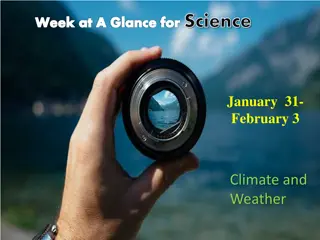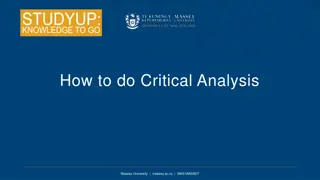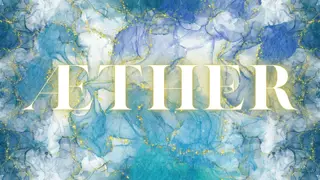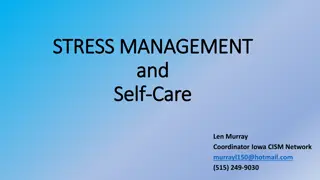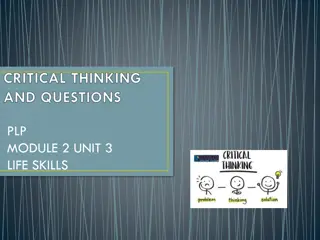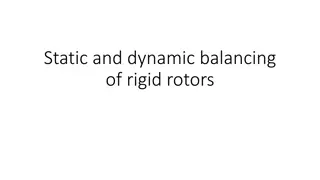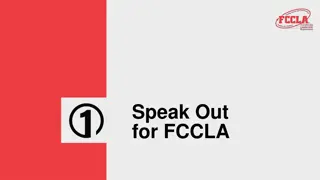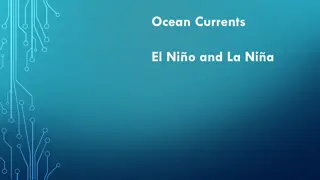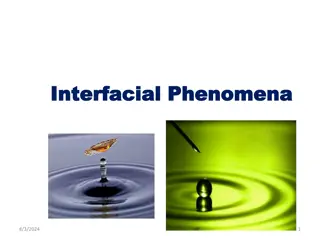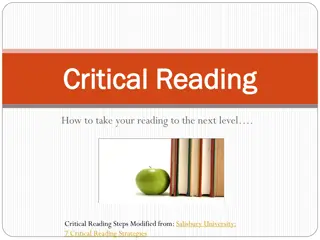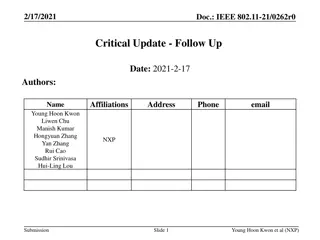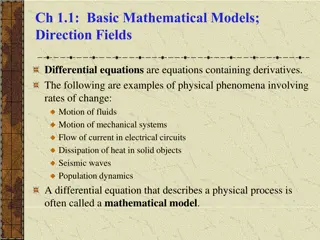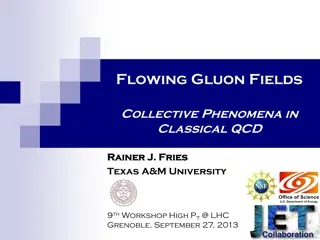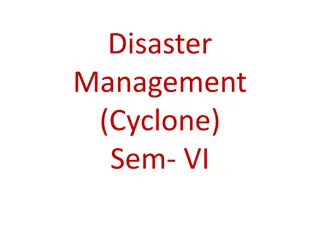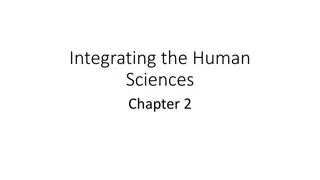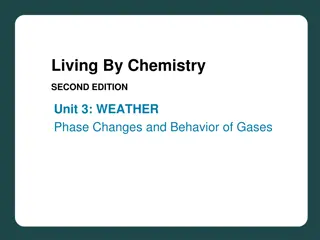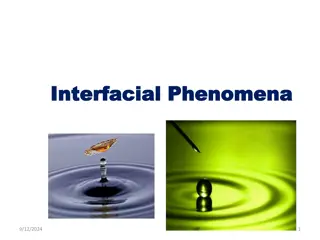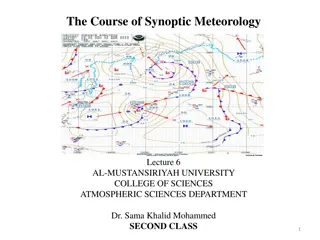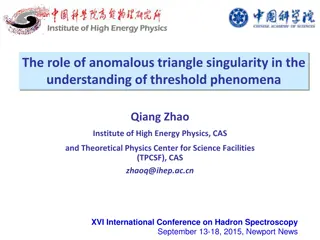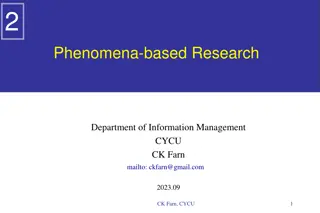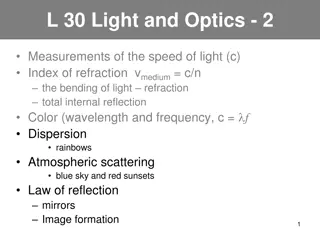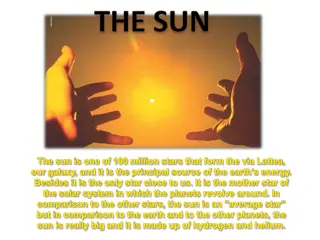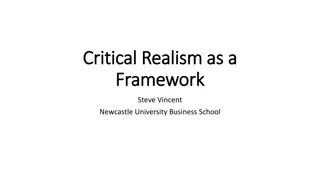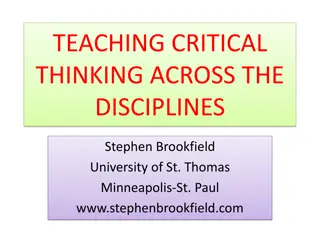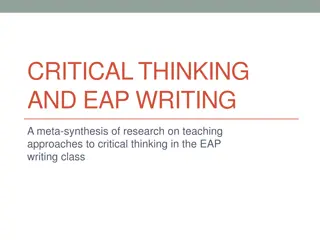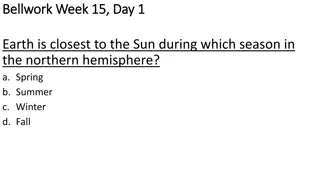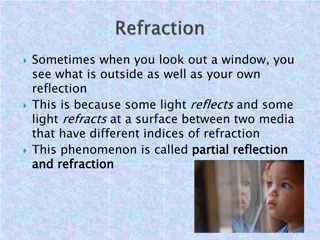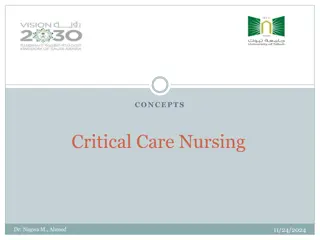Understanding Critical and Non-Critical Incidents in Incident Reporting
Critical incidents, as defined by regulations, are serious events that pose immediate risk to health, safety, or welfare. Non-critical incidents, on the other hand, are minor in nature and do not have serious consequences. Incident reports play a crucial role in documenting occurrences, identifying
0 views • 29 slides
Science Week at a Glance: Climate and Weather Insights
Dive into a week of science exploration focusing on climate and weather phenomena. From analyzing atmospheric layers to understanding the impacts of moisture on weather patterns, this overview covers a range of topics including greenhouse gases, hurricanes, wind systems, and meteorological events. E
3 views • 6 slides
Space Weather: The Sun-Earth Connection
Explore the intricate relationship between the Sun and Earth, as space weather phenomena such as solar flares and sunspots impact our daily lives. Discover how disruptions in communication systems, satellite navigation, and power grids can occur due to solar activity, highlighting the importance of
5 views • 37 slides
How to do Critical Analysis
Massey University provides valuable insights on critical analysis, distinguishing between description and analysis, evaluating evidence and reasons, and making strong arguments. Critical thinking involves evaluating evidence to reach informed conclusions, surpassing mere understanding. While descrip
0 views • 22 slides
Unveiling the Mysteries of the Æther: A Metaphysical Perspective
A philosophical framework, the Æther seeks to provide a foundational understanding for interpreting "electromagnetic" phenomena. Postulated as an energetic, metaphysical background, it is considered a medium or substrate facilitating these phenomena. This proposed concept delves into the realm of p
0 views • 53 slides
Understanding Critical Incident Stress Management (CISM)
Critical Incident Stress Management (CISM) is crucial for addressing the emotional, physical, and psychological reactions to overwhelming events. This includes definitions of critical incidents, CISM teams, peer support, and crisis response teams. Learn how the International Critical Incident Stress
2 views • 25 slides
Enhancing Critical Thinking Skills Through KWHL Chart
Critical thinking entails questioning and seeking more information before accepting ideas. The KWHL chart method is introduced to improve critical thinking skills, encouraging students to note what they know, what they want to learn, how they can learn more, and what they have learned. Engaging in a
0 views • 5 slides
Understanding Rigid Rotor Balancing and Critical Speed
Explore the concepts of static and dynamic balancing of rigid rotors, determining when a rotor can be assumed rigid based on speed, examining Jeffcott rotor critical speed problems, and discussing the simplest model of rotor systems. Learn about rotor imbalance, free vibrations, natural frequency, a
1 views • 29 slides
Understanding Critical to Customer (CTC) and Critical to Quality (CTQ)
Quality is determined by meeting customer needs. Critical to Customer (CTC) Flowdown translates these needs into Critical to Quality (CTQ) aspects. This tool helps organizations identify what is critical to meet customer expectations, serving as a communication tool and guiding improvement projects.
2 views • 10 slides
Significance of Models in Agricultural Geography
Models play a crucial role in various disciplines, including agricultural geography, by offering a simplified and hypothetical representation of complex phenomena. When used correctly, models help in understanding reality and empirical investigations, but misuse can lead to dangerous outcomes. Longm
0 views • 8 slides
Electric Properties of Colloids in Liquid Media: Charging Mechanisms and Electrokinetic Phenomena
Colloidal particles dispersed in liquid media can acquire a charge through selective adsorption of ionic species or ionization of surface groups. This leads to electrokinetic phenomena like electrophoresis, electro-osmosis, sedimentation potential, and streaming potential. The stability of colloids
2 views • 16 slides
Exploring Critical Thinking in a Digital Society
Delve into the realm of critical thinking in the modern era, where information is readily available. Discover how easy access to data impacts our ability to think critically. Explore the importance of critical thinking and its application in today's society. Learn about the six-step critical thinkin
0 views • 32 slides
Understanding Ocean Currents: El Niño and La Niña Phenomena
Explore the impacts of El Niño and La Niña phenomena on weather patterns, from unusual warming (El Niño) to cooling (La Niña) of the Pacific Ocean. Discover how these phenomena affect regions like North America, Southern California, and North Carolina, influencing temperature, precipitation, and
0 views • 9 slides
Understanding Interfacial Phenomena in Surfactant Solutions
Micelle formation is a key process in surfactant solutions, where the critical micelle concentration (CMC) is reached leading to the formation of micelles. The CMC decreases with longer hydrophobic chains and is influenced by the addition of electrolytes. Adsorption at solid interfaces and wetting p
1 views • 21 slides
Unlocking Critical Reading Skills: Strategies and Techniques
Enhance your reading comprehension through critical reading practices. Understand the definition of critical reading, its importance in the reading process, and learn practical steps to become a critical reader. Discover how critical reading fits into the C.A.R.E. model and the benefits it brings to
0 views • 26 slides
IEEE 802.11-21/0262r0 Critical Updates Discussion Summary
The document discusses critical updates related to IEEE 802.11-21/0262r0, focusing on changes in system information for APs within an AP MLD. It addresses scenarios where non-AP STAs receive Beacon frames with direct inclusion events, potential issues with updating critical information, and proposes
0 views • 9 slides
Understanding Differential Equations in Physical Phenomena
Differential equations play a crucial role in modeling physical phenomena involving rates of change like fluid motion, mechanical systems, and heat dissipation. This content explores examples of differential equations in motion and provides insights on sketching direction fields using tools like Map
0 views • 11 slides
Understanding Flowing Gluon Fields and Color Glass Phenomena in QCD
Explore the collective phenomena of gluon fields in classical QCD, focusing on the Standard Model of URHICs, Color Glass, and Gluon Fields in the Forward Lightcone. The research delves into topics like local thermal equilibrium, viscous hydrodynamics, and the interaction of probes with quarks and gl
0 views • 24 slides
Understanding Cyclones and Associated Phenomena in Disaster Management
Cyclones are large air masses characterized by swirling winds around a low-pressure center. Mesocyclones are vortexes within storms that can produce tornadoes. Dust devils and waterspouts are related phenomena, with dust devils ranging in size and potential threat levels. Other variations include st
7 views • 8 slides
Understanding Human Sciences: Chapter 2 Insights
In Chapter 2 of Integrating the Human Sciences, key definitions such as phenomena, subsystems, and causal links are explored. The study emphasizes developing a map of human science to understand the intricate relationships between various phenomena. It delves into economic growth as a phenomenon and
0 views • 14 slides
Exploring Weather Phenomena and Meteorological Predictions
Dive into the fascinating world of weather phenomena and the science behind meteorological predictions in this unit of Living By Chemistry SECOND EDITION. Learn about proportional relationships, temperature scales, behavior of gases, and how to interpret weather maps to make accurate predictions. En
0 views • 19 slides
Understanding Interfacial Phenomena and Micelle Formation
Interfacial phenomena play a crucial role in the formation of micelles in surfactant solutions, leading to a decrease in surface tension. The critical micelle concentration (CMC) marks the point where micelles first form in the solution. Factors like chain length and electrolytes impact CMC and mice
0 views • 20 slides
Exploring Quarkyonic Matter and Chiral Pairing Phenomena
Investigate the characteristics of quarkyonic matter and chiral pairing phenomena in the context of dense QCD at T=0. Delve into the confinement aspects, the properties of quarkyonic matter near T=0, and the candidates for chiral symmetry breaking. Consider the implications of chiral pairing phenome
0 views • 42 slides
Understanding Synoptic Meteorology: Fronts and Weather Phenomena
Fronts are boundary surfaces that separate air masses of different densities, leading to various meteorological phenomena. Cold fronts, warm fronts, occluded fronts, and stationary fronts impact weather patterns differently, affecting temperature, moisture levels, and wind direction. Understanding t
0 views • 22 slides
Role of Anomalous Triangle Singularity in Threshold Phenomena Understanding
Anomalous Triangle Singularity (ATS) is explored in the context of threshold phenomena understanding, focusing on its occurrence when all three internal particles are simultaneously on shell. The study delves into kinematic effects, genuine states recognition, and specific cases such as heavy pentaq
0 views • 36 slides
Understanding Phenomena-based Research in Information Management
Explore the evolution of modern science, the importance of phenomena-based research in connecting theory to reality, and the consequences of unreal research in the realm of technology acceptance models. Delve into the significance of relating research to the real world for meaningful impact and prog
0 views • 20 slides
Exploring Light and Optics: Reflection, Refraction, and Phenomena
Explore the fascinating world of light and optics, delving into topics like the speed of light, index of refraction, reflection, refraction, dispersion, rainbows, atmospheric scattering, and more. Understand how different colors of light are refracted, leading to phenomena such as rainbows and blue
0 views • 23 slides
Steps to Success: Conducting Scientific Experiments
Scientific experiments play a crucial role in discovering new things. Follow a specific order of steps outlined in the guide to successfully conduct experiments. Begin by understanding biological phenomena, formulating hypotheses, planning, performing experiments, observing results, and drawing conc
0 views • 29 slides
Understanding Surface Chemistry and Adsorption Phenomena
Surface chemistry is a crucial branch of chemistry that focuses on the chemical processes occurring at interfaces between different surfaces like solid-liquid, solid-gas, and liquid-gas. This field plays a significant role in various industries, including electronics. Adsorption, absorption, and sor
0 views • 15 slides
Exploring the Sun: Structure, Phenomena, and Effects
The sun, a critical star for life on Earth, exhibits various fascinating structures and phenomena. From the solar corona to solar faults, prominences, and flares, each aspect offers insights into the sun's dynamic nature. Solar flares, the most explosive events, release enormous energy and give rise
0 views • 9 slides
Quantitative Research Framework for Historical Disciplines
Scholarly communities in historical disciplines are combining quantitative and qualitative methods to study phenomena that change over time. The proposed general methodological reflection aims to enhance research in historical linguistics through quantitatively driven models and claims. Quantitative
0 views • 18 slides
NetLogo - Programmable Modeling Environment for Simulating Natural and Social Phenomena
NetLogo is a powerful and versatile programmable modeling environment created by Uri Wilensky in 1999. It allows users to simulate natural and social phenomena by giving instructions to multiple agents operating independently, making it ideal for modeling complex systems evolving over time. NetLogo
0 views • 7 slides
Exploring Critical Realism as a Framework
This topic delves into the use of Critical Realism as a framework to develop knowledge about the social world, combining conceptual parts to bridge theoretical gaps and critique existing theories. It discusses ontological commitments, realist ontology, meta-theory, and domain-specific theories, emph
0 views • 22 slides
Enhancing Critical Thinking: Strategies and Practices Across Disciplines
Explore the multifaceted dimensions of critical thinking in teaching and learning across various disciplines. Uncover the importance of identifying assumptions, the role of different traditions in promoting critical thought, and practical techniques like the Circle of Voices. Discover how critical t
0 views • 16 slides
Enhancing Critical Thinking in EAP Writing: A Meta-Synthesis Study
Investigating the teaching approaches to critical thinking in EAP writing classes, this meta-synthesis research delves into the importance of critical thinking, key issues in the literature review, defining critical thinking, enhancing criticality in academic writing, and understanding critical thin
0 views • 14 slides
Resonance Phenomena in Grating Structures and Applications
Resonance phenomena in grating structures, such as dielectric or metal gratings on substrates, offer sensitive elements for detecting biological and chemical agents. The sensitivity of these structures is described by equations relating to resonant wavelength changes and the refractive index of inve
0 views • 20 slides
Understanding Comparative Politics: Power, Influence, and Political Phenomena
Politics involves power and influence, where individuals strive to achieve their goals by influencing others or breaking free from external influences. Political science delves into the study of power and political phenomena, while comparative politics focuses on analyzing political dynamics within
0 views • 21 slides
Science Bellwork Questions for Week 15
This set of bellwork questions for Week 15 covers various topics related to Earth's position to the Sun, the Sun's motion, Moon phases, and reflections on learning in science class. Students are prompted to answer questions about Earth's closest position to the Sun, sunrise and sunset phenomena, the
0 views • 5 slides
Understanding Reflection and Refraction Phenomena in Optics
Reflection and refraction are fundamental phenomena in optics, occurring when light encounters surfaces with different indices of refraction. This results in partial reflection and refraction, with the amount of each depending on the angle of incidence. Beyond a critical angle, total internal reflec
0 views • 12 slides
Understanding Critical Care Nursing: Principles, Definitions, and Types of Units
Critical care nursing involves providing specialized and individualized care to patients with life-threatening conditions. The concept, principles, definitions, and types of critical care units are discussed, emphasizing the importance of early detection, prompt action, and anticipating patient need
0 views • 20 slides

